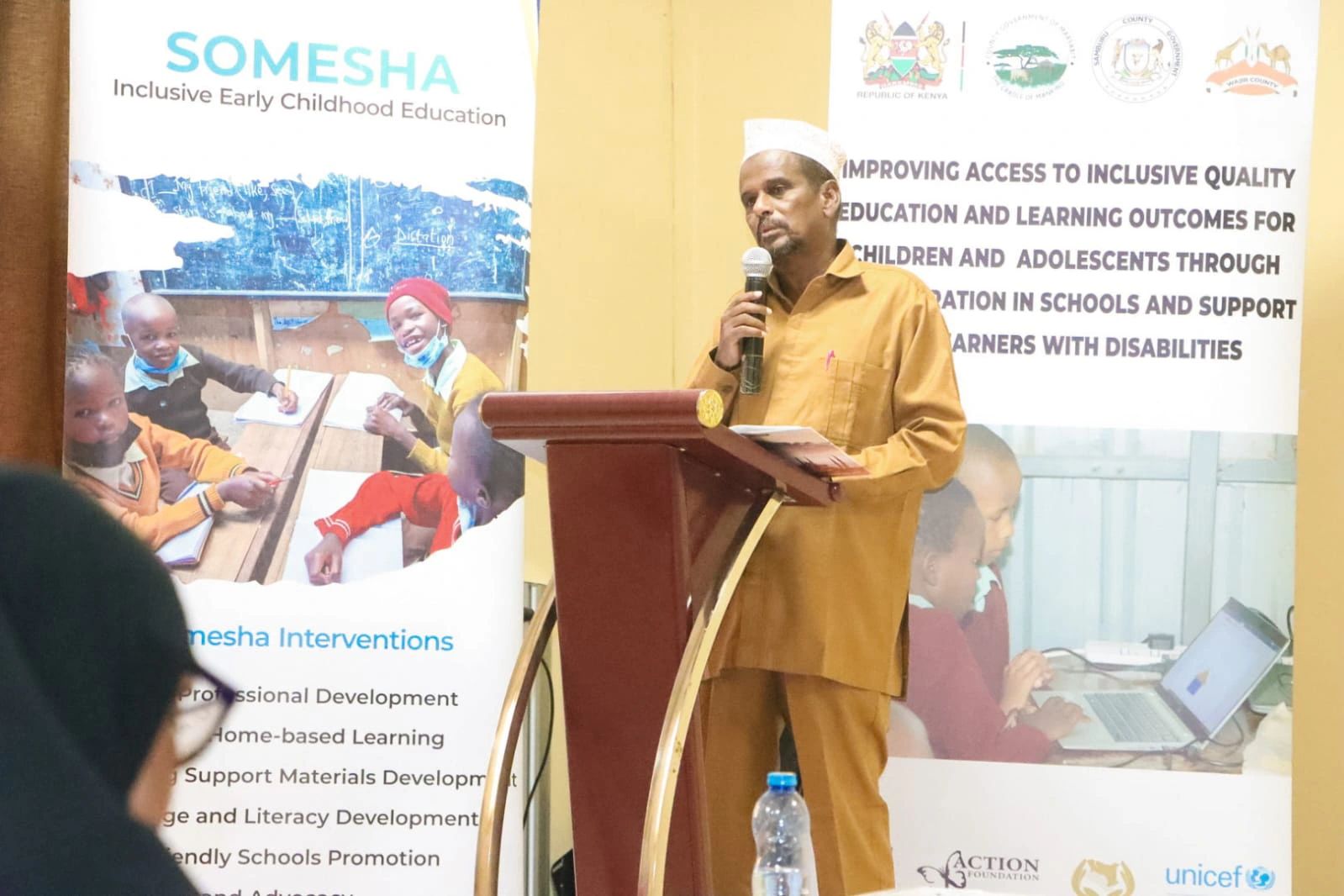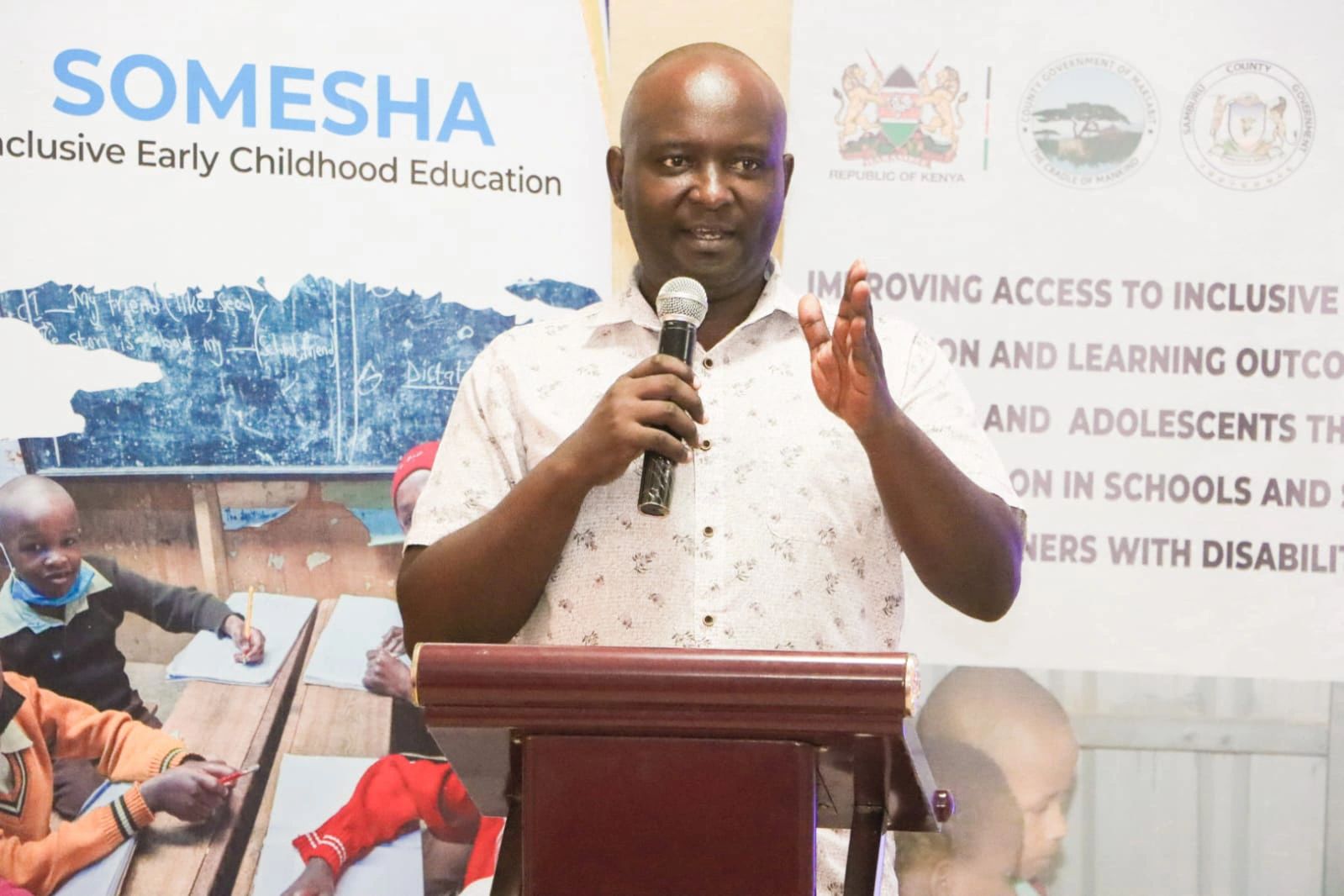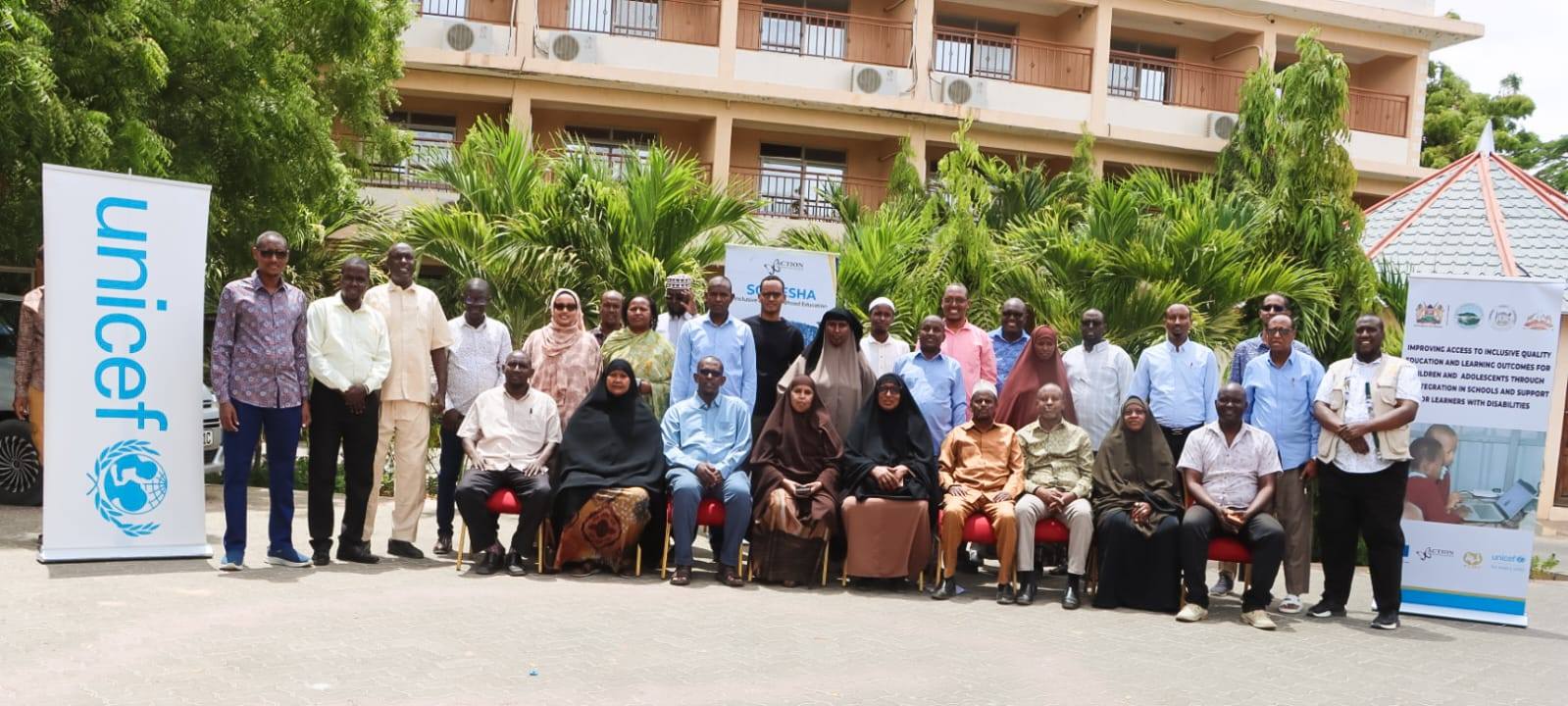A new European Union–funded initiative has been launched in Wajir County to bridge the digital divide and promote inclusive education by connecting remote schools to the internet.
The Last Mile Connectivity in Schools (LMCS) initiative, implemented by UNICEF Kenya in partnership with both levels of government, the Frontier Counties Development Council (FCDC), and other key stakeholders, was officially launched at the Wajir Palace Hotel.

The groundbreaking program aims to empower teachers and learners with digital tools, ensuring that every child, regardless of gender, disability, or background, can access quality education in a connected world.
Speaking during the launch, Mr. Alex Murithi, representing the County Commissioner, CECM for Education Mr. Yakub M. Dahiye, and County Director of Education Dr. Koriyow Ali hailed the initiative as a major milestone in Wajir’s ongoing efforts to improve access, quality, and inclusivity in education.
UNICEF’s Mohamed Abdullahi and Osman Mohamud reaffirmed the agency’s commitment to ensuring that no child in Wajir is left behind.
“This initiative embodies our shared vision of transforming classrooms into connected, inclusive learning spaces where every child can learn, grow, and succeed,” they said.
The LMCS program brings together a strong coalition of partners, including the European Union in Kenya, the German Government, The LEGO Foundation, the ICT Authority, the Ministry of Education, Teachers Service Commission (TSC), the Wajir County Government, Life Skills Promoters (LISP), and The Action Foundation.

By extending internet access to the most remote schools, the program seeks to unlock new opportunities for digital learning, enhance teacher capacity, and prepare learners for a technology-driven future.
FCDC noted that this initiative is part of a broader vision to reduce regional disparities in education and ensure equitable access to digital resources across Kenya’s frontier counties.
As the program takes root, stakeholders expressed optimism that Wajir’s classrooms will soon become hubs of innovation, bridging the gap between isolation and opportunity and empowering the next generation of learners to thrive in a digital age.

